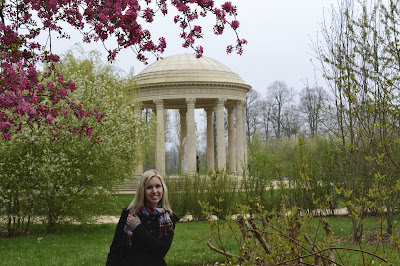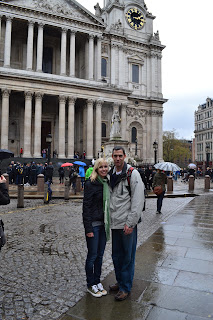I read this book on a plane, and I think I only put it down once or twice. (I wanted to say that casually, but I can’t! It’s not like I catch a flight all the time! Steve and I went to London and Paris this month – wowee! London to visit my parents, and Paris because – what the heck, we wanted to see Paris, too! It was a fabulous trip.)

Still Alice is an exceptional book for those with a loved one who has been diagnosed with Alzheimer’s disease, or if, like me, you’re simply curious about the disease and its process. The story is a fictional account of a woman’s painful journey through early-onset Alzheimer’s disease. Dr. Alice Howland is a 50-year-old psychology professor at Harvard University, mother of three successful twenty-somethings (one slightly rebellious), and wife to John, a Harvard biologist. Extremely bright, healthy, and respected and accomplished in her field, Alice’s descent begins slowly (a forgotten word, a misplaced phone) but picks up rapidly as she forgets important appointments, names, and even where she lives due to her short-term memory loss. The book does an excellent job in describing her embarrassing journey through her decline and abrupt end to her career, and I could feel her pain and humiliation. I thought, though, that the premise seemed a bit contrived. Of course Alice is a professor at Harvard; of course she’s a 5-mile-a-day runner – we get it that she is really smart and healthy. We learn that the disease can strike anyone, and it is heartbreaking that Alice is still in her prime when it does.
Another problem I had (and maybe the author did this on purpose?) was her husband and children’s reaction to her disease. Alice knows her diagnosis for 10 days before confiding in John. (How awful that she was too embarrassed to tell her husband.) He remains in a state of denial for some time – understandable, he is a scientist and wants more tests, more proof – but never does he throw his arms around his wife and comfort her. Even worse is the utterly selfish reaction of their kids. Immediately, they voice concerns of carrying the mutation (because the disease is genetic). Anna, 27-years-old and pregnant, bursts out, “What if I have it?” and “What about my baby?” Of course these are valid concerns, but in that entire scene not once do Alice’s children take her hand, offer a hug, or say, “Oh Mom, I’m so sorry.” I found that pretty disheartening, and perhaps indicative of how Alice and John had raised their children.
Yes, Still Alice is very sad. Alzheimer’s disease is devastating. I thought it was very telling that Alice wished for cancer instead – anything but Alzheimer’s, which she found humiliating. Cancer, at least, was “noble.” Alice’s experiences helped me imagine some of the despair that Alzheimer’s patients and their families must go through.
I liked the way the story ends. Though Alice was by then completely oblivious, she was finally content. Her mind was gone and her family was frustrated, but she was past the earlier indignities (when she was still aware) and seemed sort of peaceful. Also, her children and husband had come together in a way they perhaps never would have. Certainly there was more tragedy to come, but I liked the way the book ended on that note.








I read this book at the recommendation of a friend and I am so glad I read it. It was difficult for me given that we are going through this process with my mom but amazingly it made me feel less alone. I saw so much of my mom in Alice.
ReplyDeleteLove that you are blogging!! And I love that you are a reader! Can't wait to find out about your fun reads!!
Thank you Karen! I thought of you often when I read this book...it was so eye-opening for me and I thought handled the subject so well. What a thing to go through...I admire you all the more. Thanks for your comment.
ReplyDelete